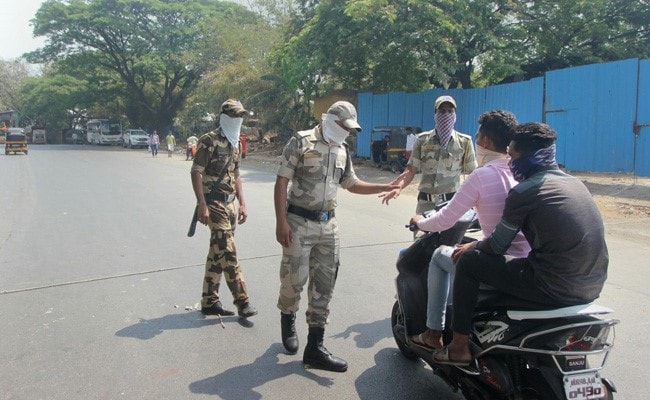
Centre said by imposing nationwide lockdown, India successfully blunted the aggressive spread of COVID-19
The government prevented 14-29 lakh coronavirus cases and 37,000-78,000 deaths due to the disease by imposing the nationwide lockdown that was announced on March 24, the Lok Sabha was informed today.
Union Minister of State for Home Nityanand Rai said the World Health Organisation (WHO) has observed, with regard to the lockdown measures taken by the government, that India's response to COVID-19 has been pre-emptive, pro-active and graded with high level political commitment and a "whole government" approach to respond to the pandemic.
Mr Rai said by imposing the countrywide lockdown, India successfully blunted the aggressive spread of COVID-19.
"It has been estimated that the decision of lockdown, by slowing down the progress of pandemic in India, has prevented 14-29 lakh cases and 37,000-78,000 deaths," he said in reply to a written question.
The minister said the period of lockdown helped the nation to create the much required additional health infrastructure. During this time, dedicated isolation beds recorded a 22 times increase and dedicated ICU beds expanded by 14 times in comparison to the numbers in March 2020.
Similarly, he said, laboratory capacity for testing COVID-19 was increased by nearly 10 times during the lockdown.
While there was no indigenous manufacturing of Personal Protective Equipments (PPEs) with the requisite standards at the time when the lockdown was imposed, the country is now self-sufficient and in a position to export the same, he said.
Mr Rai said similarly, very limited indigenous manufacturing capacity was available for masks, ventilators, etc. at the time of lockdown, which was also enhanced to attain self-reliance in this regard.
During this period, requirement of various cadres of personnel and volunteers across sectors and departments for COVID-related works and maintenance of other essential medical services were worked out and they were trained through resources made available on the website of Ministry of Health and Family Welfare (MoHFW) and iGOT, an online platform (https://igot.gov.in/igot/), he said.
(This story has not been edited by NDTV staff and is auto-generated from a syndicated feed.)







